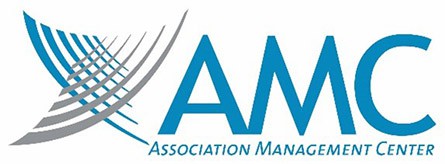In August 2019, AMC and The Collaborative began releasing episodes of the “Conversations by Association” podcast, a professional development series for association and nonprofit professionals by experts in this niche, yet robust, industry.
Though we carefully researched and prepared before recording even began, we learned several best practices on the job that we could not have anticipated ahead of time. If you’re considering developing a podcast for your organization, we’re sharing 10 tips that can make podcast preparation, recording, and management easier.
Preproduction Preparations
1. Research hosting options early on. There are a lot of different podcast hosting tools available, so before you even begin outlining episodes and inviting guest speakers, make researching hosting options to find the best fit for your podcast one of the first things you do.
2. Ensure a positive experience for your guests by keeping them informed about expectations, the process, and logistics. Create a welcome kit to send to the guest about a week before the recording that includes FAQs (i.e. maps, addresses, or parking information); best practices for the day they record; and even tips for promoting their episode on social media, in professional online communities, and to their network for when their episode goes live. This allows the speaker to ask any questions prior to recording and feel more comfortable during the recording itself. If your guest is calling in over the phone, include guidelines for what kind of phone line works best and for determining a quiet place for the phone conversation.
3. Assess speech patterns and timing with pre-interview calls or practice. Everyone has their own cadence and communication pattern, so having a pre-call with your guests not only helps you learn their speech patterns (such as how often they pause when speaking, how detailed they are with their explanations), but also prepares your guests for how you will ask questions and guide the conversation.
4. It may be uncomfortable, but it’s important to listen to recordings of yourself. Tune in to your tone of voice, words you use often, and even where you pause to determine how you want to sound and what you need to change to get that sound. Some natural conversation fillers such as like, um, and uh; long pauses; and repeated words or phrases are easy enough to remove in postproduction if needed, but may be off-brand for your series. Listening to yourself and practicing can help you achieve that perfect cadence before you even begin recording.
Get the Most from Your Recording Sessions
5. Be Prepared. Whether you’re recording a scripted informational session or interviewing a guest, it’s important to have a plan. Whether that means bringing a basic outline of questions or topics to guide the conversation or an established script, having something ready beforehand is critical to having a great recording on the first try.
6. Make sure there aren’t any background noises. Record in a soundproof room or studio, if possible. If you don’t have access to a soundproof space, turn off all air conditioning and heating units, close windows, draw drapes, use stationary chairs, and have professional equipment tuned properly to eliminate ambient noise and reduce postproduction editing time.
7. Keep your hands off the table! Many of us talk with our hands, but it is crucial to keep your hands in check while recording to avoid the extra noise created by hands, arms, and accessories knocking against the table or the microphone toppling over. Be mindful of your surroundings and try your best to avoid creating a sound-editing headache.
Postproduction
8. Build a couple of weeks into your schedule for your podcast to be approved by streaming platforms. Once your first episode is complete and up on your website or hosting platform (along with your artwork, title, and description), you can submit your RSS feed to various podcast platforms for approval. Popular platforms like iTunes, Spotify, and others can take weeks to grant approval, so factor that time frame into your schedule.
9. Before submitting your podcast to different platforms, double check what requirements are needed. They differ for each platform.
And Finally
10. Have fun! Pick people to interview, cohost, and work behind the scenes with who you enjoy learning from. Podcasts are an investment of time, energy, and heart, so it really should be an enjoyable journey if you’re doing it right.
Season one of Conversations by Association may be found online, on Apple Podcast, Spotify, and Google Play. Stay tuned for season two, due for release in March 2020.
Many thanks to those who contributed to this post: Christina Rowe, founder and CEO of The Collaborative; and AMC’s Carly Bartman, multimedia and marketing project manager; Andie Bernard, web and editorial project manager; Heather Payette, content marketing associate; Megan Toal, content marketing associate; and Deb Woodall, executive director of Creative Media Services.
Be the first to know about the latest articles, news, and events from AMC. Sign up for our emails!

